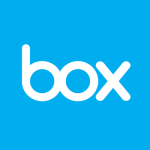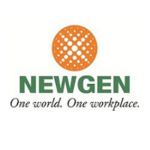What is most valuable?
In terms of sub-products/components, the most valuable features are definitely Content Server and DFC. The core components are the most valuable and trusted ones. These components help us make a solution that can manage documents and their metadata providing features such as permissions, auditing, transactions and debugging for when things get strange. Doing this from scratch may be a good option, but using Documentum we may be able to save some time.
WDK is also very useful. It's not the best web framework, but it is an acceptable one for most cases and it's directed for a Documentum solution.
For some users, Webtop can be a good solution. From my experience, a customized version, usually very customized, of Webtop is an optimal solution.
How has it helped my organization?
The organization needs to manage a large number of documents. Depending on the context or application, it produces from 50k documents a year to 200k documents a day.
We designed several solutions for several business contexts. The core of the solution design was the custom-made design specific for the organization, and not the fact that it depended on Documentum. Using Documentum helped in the development process. Application development would be more costly if it was from scratch, rather than using some basic Documentum features.
What needs improvement?
Performance could be better. But this is a generalization. We can achieve good performance with Documentum, but we need experience to understand several details about how Documentum works to avoid performance problems. Documentum, out of the box, could be better designed so that we wouldn't fall into these problems so easily.
Also, the permissions model could be better. For example, I don't understand why we don't have the concept of a read-only user enforced by content server. But I can understand it can be difficult to make a permissions model that can be simultaneously generic and functional.
Sub-products like RPS and Records Manager are really bad. But I wouldn't hope for improvement here. The mission here is difficult. Trying to make a product that can handle lots of records, millions usually, is a tough mission. We have to be able to apply customer rules you don't know yet, because they're the customer's rules (and exceptions).
For how long have I used the solution?
I’ve been using Documentum for 11 years.
What do I think about the stability of the solution?
The core (content server and DFC) is very stable. Several sub-products, like RMA and RPS are really bad stability-wise and many other aspects.
What do I think about the scalability of the solution?
The core (content server and DFC) are reasonably well scalable. Several sub-products, like RMA and RPS, are really bad scalability-wise and many other aspects.
The content server could be more scalable if it didn't depend so much on dm_sysobject. The design overuses dm_sysobject without much need. Lightweight objects can be a way of solving this issue. Table partitioning can be useful also, but table partitioning can be a lot of work for solving a design problem.
How is customer service and technical support?
I rate technical support 1/5. Whenever I wanted help from Dell EMC, it wasn't for trivial issues. I wanted help from people that have a high degree of knowledge in Documentum and, in some cases, have access to information that I don't (like something I could only know by reverse engineering).
For sure, some people in Dell EMC have knowledge and can be really helpful, but usually when we submit a case or question, we have to pass through some people that know less than what we know. This makes us lose lots of time asking irrelevant questions for information we already gave. Sometimes we give up before getting to someone with knowledge.
Other times, our issue really gets to someone with knowledge (after quite some time), and only a percentage of those times the support is helpful. Also, Dell EMC doesn't support Documentum's versions for a long time. You quite often see Dell EMC personnel saying Dell EMC does not support old versions when, for most situations, we can see the issue would not be any different in the most recent version.
How was the initial setup?
Initial setup was complex. Several times we started with a solution. Then, in production, we started to get problems concerning performance or complexity, because we tried to use a product that needs to be generic to our customer specific solution. Then usually, when we address the problems, we figure out that replacing some Documentum-specific features with a customized feature (usually a simple one) can be a huge improvement.
What's my experience with pricing, setup cost, and licensing?
I'm not an expert on this but from what I know, the pricing and licensing model is strange and I'm not sure how well it is controlled. For example, paying by user capability (consumer, contributor, coordinator) makes sense when the user application is Webtop. But we can have a WDK solution or any other web-based solution where the user capability is completely irrelevant.
Which other solutions did I evaluate?
I was not involved in product evaluation. The organization evaluated FileNet as one option, but I can't say much about it.
What other advice do I have?
Stick to the core (Content Server, DFC)! I don't want to say WDK because Dell EMC is/was always saying it was going to end it. Otherwise, it was something to consider.
Dell EMC made DFS, which was a logical approach. But for several users (like myself), if you design web services by yourself using plain DFC, you’ll get better web services and it's not that complicated. Of course, you're not going to provide all the functionality DFS provides, but you won't need it.
Make it simple when possible! When you need something more complex regarding specific functionality or great performance, consider custom development. Don't assume that because Documentum has a feature addressing what you want to do, you should use it. Do the pros and cons first.
You would want to block the generic interfaces and customize your solution, unless:
- Your solution needs to manage only a few documents.
- Your users are IT people that understand what they should or should not do with an interface as generic as Webtop or CenterStage.
- You use DFS services without being very careful (performance-wise, for example).
Disclosure: I am a real user, and this review is based on my own experience and opinions.
















Although the price is very high, it is suitable for large-scale organizations implementing core business processes with different scales.